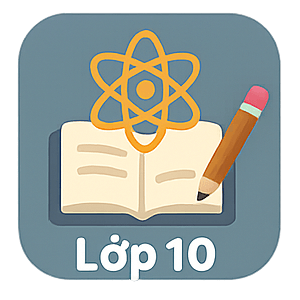Giáo án Tiếng Anh lớp 10 Unit 10: Conservation - Lesson 1
Giáo án môn Tiếng Anh lớp 10
Giáo án Tiếng Anh lớp 10 Unit 10: Conservation - Lesson 1 được VnDoc sưu tầm và giới thiệu để có thể chuẩn bị giáo án và bài giảng hiệu quả, giúp quý thầy cô tiết kiệm thời gian và công sức làm việc. Giáo án môn Tiếng Anh 10 này được soạn phù hợp quy định Bộ Giáo dục và nội dung súc tích giúp học sinh dễ dàng hiểu bài học hơn.
Giáo án Tiếng Anh lớp 10 Unit 9: Undersea World - Lesson 4
Giáo án Tiếng Anh lớp 10 Unit 9: Undersea World - Lesson 5
Giáo án Tiếng Anh lớp 10 Unit 10: Conservation - Lesson 2
I. Objectives:
1. Education aims: Students improve their knowledge about conservation.
2. Knowledge:
a. General knowledge: Knowledge about conservation.
b. Language:
- The present simple tense.
- Vocabulary concerning conservation.
3. Skills:
- Speaking: talk in pairs and in groups.
- Reading comprehension
II. Anticipated problems: words, and knowledge about conservation.
III. Teaching aids: board, textbook, chalk.
IV. Procedures:
|
Teacher’s activities |
Students’ activities |
|
1. Warm-up: (3 mins) + Network.. - Ask sts to work in groups of 3 or 4. - Ask sts to give a list of the animals which are in danger of extinction. - After 3 minutes, the group which has the longest list will be the winner. 2. Before you read: (10 mins) - Sts are required to answer the questions given in the part: 1. Have you ever visited a zoo or a forest? 2. What animals are you interested in? Why? 3. Do we need to protect animals and forests? + For each question, 2-3 sts are required to answer orally. + Vocabulary: - Provide the students with some new words/phrases +Variety(n): a large number of different kinds. + Species(n): = kind, type. + Eliminate(v): = disappear, remove + Destruction(n) ódestroy(v)ó destructive(Adj): sù ph¸ huû. + Hydroelectric dam(n): ®Ëp thuû ®iÖn. + Circulation(n): Sù chuyÓn ®éng. ócirculate(v) + Overnight(Adv): in a very short period of time - Read each word/phrase 3 times and ask sts to repeat it. - Leave sts 1 minute to self-practise. - Ask 4-5 sts to read all the word/phrases aloud in front of the class - Listen and help sts to read the words/phrases correctly. 3. While you read:( 20 mins) + Task 1: Matching. - Ask sts to read the passage independently and match the words or phrases in A with their meaning in B. - Tell sts to refer to Vocabulary for help and encourage them try to guess the meanings of the words in the context of the reading. - Call on some sts to read and explain their answers aloud in front of the class. - Get feedback and give correct answers. + Task 2: True or False. - Ask sts to read the passage more carefully and decide whether the statements are true (T) or false (F). Correct the false information. - Ask sts to highlight or underline the information in the passage that help sts to find the correct answers. - 6 - 7 sts are required to give answers in front of the class (1 st/ 1answer). - Listen and help sts to do the exercise correctly + Task 3: Main ideas. - Ask sts to work in groups of 3-4 to choose the most suitable idea for each paragraph. - Call on some representatives to read their choice for each paragraph in front of the class. - Get feedback and give correct answers. 4. After you read: (9 mins) Questions - Answers - Ask sts to work in pairs to give answers to the questions. - Go round to help the students with their work. - 3-4 sts are required to give answers to one question orally in front of the class (1 st/1 time). - Listen and help sts to give correct answers. 5. Homework: (1 min) - Ask sts to write a paragraph of about 60 words on the sequence of losing forest, how important water is, and what we should do for the future of our planet. |
- Work in groups to discuss.
- Some sts report the list in front of the class.
- Think of the answers.
- Students give answers orally. - others listen - Copy down these words into their notebooks. - Listen and repeat - Practise reading these words by themselves. - Some sts read these words again aloud (1 student/ 1 time) - Work individually.
- Try their best to do the task. - Ask some sts to report. 1.c 2.a 3.d 4.b
-Listen and self-correct the exercise.
- Sts do the work individually
- Highlight or underline the important information. - 6-7 students do orally while others watch 1. T 2. T 3. T 4. T 5. F( two last sentences of paragraph B) 6. F(last sentence of paragraph C) - Self-correct the work
- Work in groups of 3-4 students orally - Some sts report. A.3 B. 4 C. 2
- Self-correct
- Work in pairs orally. 1. We wouldn't be able to use many plants to treat various dangerous diseases. Animals wouldn't have a place to live in... 2. Mankind and most plants and animals can't survive without water... 3. We should stop polluting the environment and destroying plants and animals ......
|




